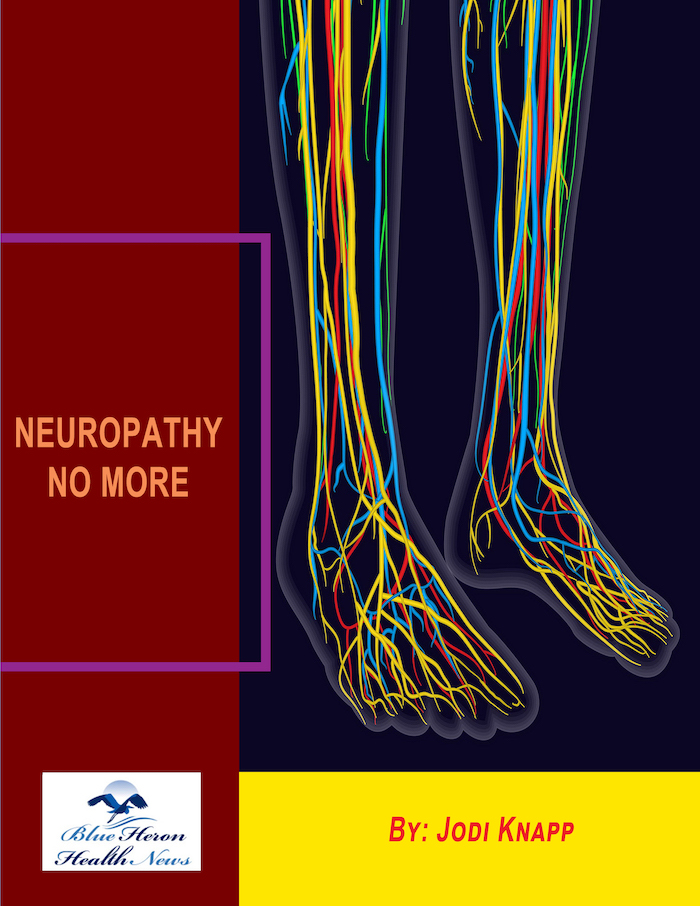
Neuropathy No More neuropathy No More By JODI KNAPP neuropathy is one of the most painful diseases which can make people suffer a lot. Even though medical science has progressed a lot, it could not really found a solution for this condition. This is because the condition is deep routed. You have to make sure that you are changing some of the lifestyle patterns to get relief from the symptoms. The Neuropathy No More is exactly what you need for that. This program is quite helpful and can provide you with all the important information that you will need to ensure better life without the symptoms.
What are the most common symptoms of neuropathy?
The symptoms of neuropathy vary depending on the type of nerves affected—sensory, motor, or autonomic—as well as the underlying cause and the extent of nerve damage. However, there are common symptoms associated with neuropathy that individuals may experience. Here’s a detailed overview:
1. Sensory Symptoms
Numbness and Tingling (Paresthesia):
- A common early symptom, often described as a “pins and needles” sensation, especially in the hands and feet. This sensation can spread upward into the legs and arms.
Pain:
- Neuropathic pain can range from mild discomfort to severe and debilitating pain. It may be described as burning, sharp, stabbing, electric-like, or throbbing. Pain may be constant or intermittent and can worsen at night.
Loss of Sensation:
- Affected individuals may experience reduced ability to sense temperature changes, pain, or touch. This can lead to injuries, as people may not feel wounds, burns, or other harm.
Heightened Sensitivity (Hyperesthesia or Allodynia):
- Increased sensitivity to touch, even light pressure, can cause pain. Allodynia refers to pain from stimuli that are not normally painful, such as the touch of clothing.
Impaired Proprioception:
- Difficulty sensing the position of body parts, leading to coordination and balance problems.
2. Motor Symptoms
Muscle Weakness:
- Weakness in the affected muscles, leading to difficulty with movements and tasks such as walking, grasping objects, or lifting items.
Muscle Cramps and Twitching:
- Involuntary muscle contractions or cramps can occur, along with muscle twitching or fasciculations.
Muscle Atrophy:
- Over time, lack of use and nerve signals can lead to muscle wasting, reducing muscle size and strength.
Coordination and Balance Problems:
- Difficulty with coordination and balance, often leading to falls and an unsteady gait.
Paralysis:
- In severe cases, paralysis can occur in the affected muscles.
3. Autonomic Symptoms
Cardiovascular Symptoms:
- Abnormal blood pressure regulation, leading to orthostatic hypotension (a sudden drop in blood pressure when standing up), dizziness, or fainting.
- Abnormal heart rate, including tachycardia (rapid heart rate) or bradycardia (slow heart rate).
Digestive Symptoms:
- Gastrointestinal issues, such as bloating, nausea, constipation, diarrhea, or gastroparesis (delayed stomach emptying), can occur due to autonomic nerve involvement.
Bladder and Bowel Dysfunction:
- Problems with bladder control, including urinary retention, incontinence, or frequent urges to urinate.
- Bowel incontinence or constipation can also occur.
Sexual Dysfunction:
- Erectile dysfunction in men, vaginal dryness, or decreased sexual arousal in women.
Sweating Abnormalities:
- Excessive sweating (hyperhidrosis) or lack of sweating (anhidrosis), which can affect temperature regulation.
Other Autonomic Symptoms:
- Dry mouth and eyes, difficulty swallowing, or a reduced ability to recognize hypoglycemia in diabetics (hypoglycemia unawareness).
4. Focal Neuropathy Symptoms
Localized Weakness or Sensory Loss:
- Symptoms are specific to the nerve affected. For example:
- Carpal Tunnel Syndrome: Numbness, tingling, or weakness in the hand, especially the thumb, index, and middle fingers.
- Bell’s Palsy: Sudden weakness or paralysis on one side of the face.
- Ulnar Neuropathy: Numbness or tingling in the ring and little fingers.
5. General Symptoms
Fatigue:
- Chronic pain, discomfort, and sleep disturbances associated with neuropathy can lead to fatigue.
Psychological Symptoms:
- Chronic pain and disability can contribute to depression, anxiety, and decreased quality of life.
Conclusion
The symptoms of neuropathy are diverse and depend on the type and extent of nerve damage. Sensory symptoms often include numbness, tingling, pain, and loss of sensation, while motor symptoms involve muscle weakness, cramps, and coordination issues. Autonomic symptoms can affect various bodily functions, including cardiovascular, digestive, and sexual functions. The presence and severity of these symptoms vary widely among individuals, depending on the underlying cause and the specific nerves involved. Early diagnosis and appropriate treatment are essential for managing symptoms and preventing further nerve damage.
Neuropathy No More neuropathy No More By JODI KNAPP neuropathy is one of the most painful diseases which can make people suffer a lot. Even though medical science has progressed a lot, it could not really found a solution for this condition. This is because the condition is deep routed. You have to make sure that you are changing some of the lifestyle patterns to get relief from the symptoms. The Neuropathy No More is exactly what you need for that. This program is quite helpful and can provide you with all the important information that you will need to ensure better life without the symptoms.